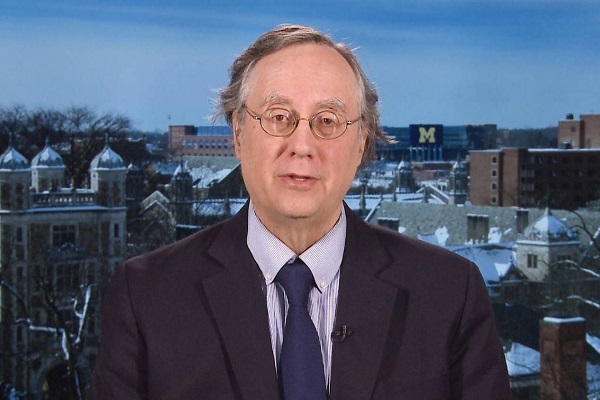American Historian Highlights Prophet Muhammad’s Message of Tolerance

Juan Cole, professor of history at the University of Michigan, delivered a speech at an international webinar titled “15 Centuries of Following the Messenger of Light and Mercy” on Tuesday. He explored Quranic verses that frame the Prophet (PBUH) as a figure of mercy, humility, and reconciliation.
His remarks contrasted the Quran’s approach with exclusionary attitudes in other ancient civilizations.
“It’s an attribute that I think all Muslims associate with the Prophet, but often in the West, where he’s sometimes vilified, the very least he’s not thought of primarily as a figure of kindness and tolerance,” said Cole, who has also authored a book about the Prophet titled Muhammad: Prophet of Peace Amid the Clash of Empires.
He cited chapter 21, verse 107 of the Quran: “We only sent you as a mercy to the worlds, to all creatures, to all human beings.” Cole added that this verse sets the tone for how the Prophet is understood in Islamic tradition.
Read More:
Another passage he highlighted was from chapter 25, verse 63: “And the servants of the All-Merciful, who walk humbly upon the earth, and when the unruly taunt them, they reply, peace.”
Cole explained that, “Wishing peace upon someone in the ancient world was a kind of prayer. It was an expression of a desire that the divine should grant that person peace.”
The historian argued that this ethic of repelling hostility with kindness reached a powerful expression in chapter 41 of the Quran: “Good and evil are not equal. Repel the latter with the highest good and behold, your enemy will become a devoted patron.”
He called it “an extremely profound verse” that goes “beyond anything in the New Testament,” because it insists that evil be countered with the greatest good, not retaliation.
Read More:
Cole linked the teaching to historical events, such as the Prophet’s return to Mecca in 630 CE. Instead of revenge against former enemies, “there weren’t mass reprisals,” he said. “Those pagan leaders in Mecca weren’t executed, and they were instead brought into communion with the new community.”
Turning to diversity, Cole emphasized chapter 30, verse 22: “And among His signs is the creation of the heavens and the earth, and the variety of your languages and complexions. Surely in that are signs for all living beings.”
He argued the verse “celebrates difference in skin color and in language” as divine signs, in stark contrast to Greco-Roman traditions that demeaned outsiders as barbarians or inferiors.
In his closing remarks, Cole cited chapter 16, verse 125: “Call to the way of your Lord with wisdom, an exquisite counsel, debate them in the best of ways.”
Read More:
He said the verse underscores humility in dialogue with other faiths. “The advice is to be humble, not to be prideful and overweening towards others, including outsiders, people who are not in the community,” he said.
“These are just a few of the verses that point to the tolerance and loving kindness of the Prophet Muhammad,” Cole concluded.
Reporting by Mohammad Ali Haqshenas



